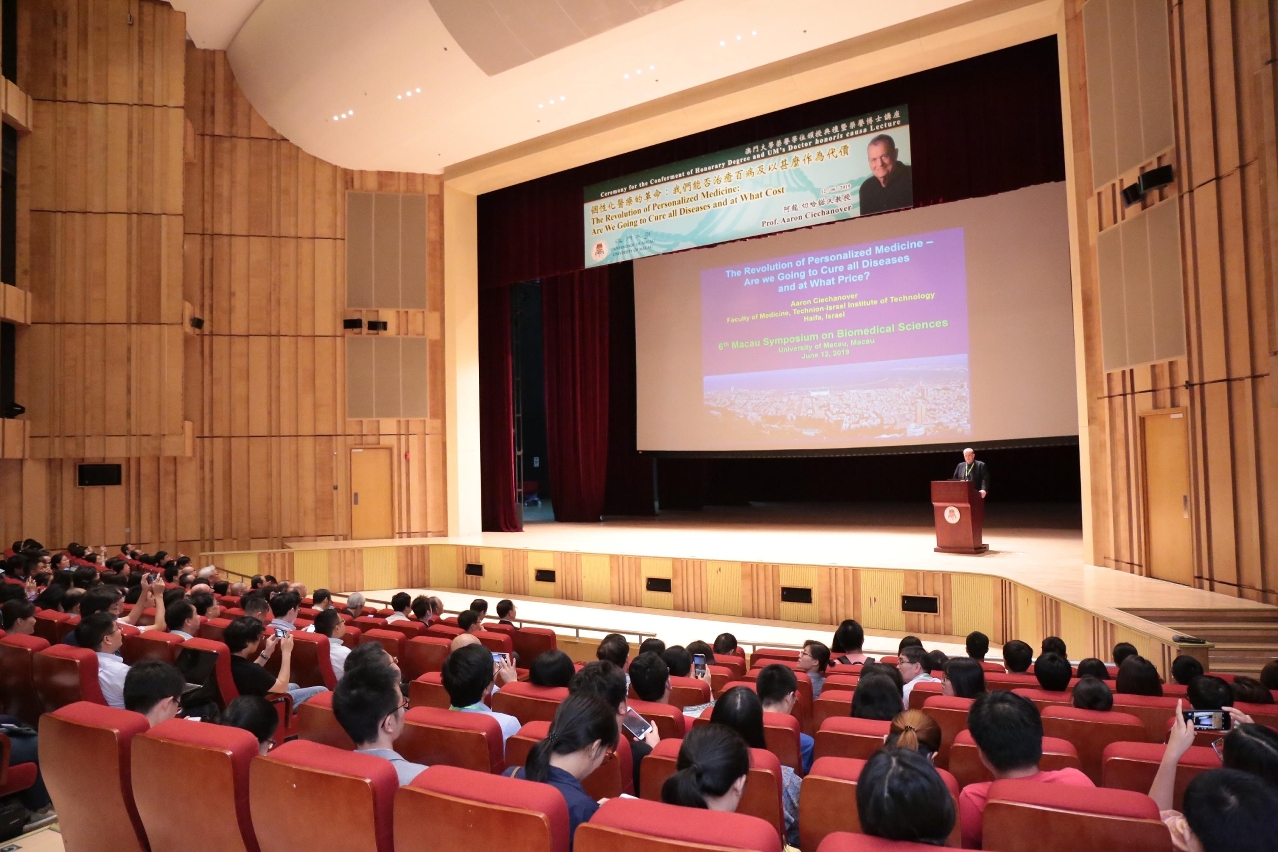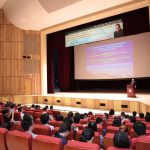 The Sixth Macau Symposium on Biomedical Sciences
The Sixth Macau Symposium on Biomedical Sciences
The Sixth Macau Symposium on Biomedical Sciences, organised by the University of Macau (UM) Faculty of Health Sciences (FHS), opened at UM today (12 June). The two-day event attracted over 400 people, including experts, scientists and researchers in the field as well as teachers and students from UM and local secondary schools. With this year’s theme being ‘innovation’, the symposium focused on cutting-edge research and innovative technologies in biomedical sciences. The Nobel laureate Aaron Ciechanover, who is also a recipient of an honorary doctorate from UM, was one of the keynote speakers.
Secretary for Social Affairs and Culture Tam Chon Weng, UM’s University Council Chair Lam Kam Seng, UM Rector Yonghua Song, and FHS Dean Chuxia Deng attended the opening ceremony. In his speech, Prof Deng said that within just six years since its founding, the FHS has made noticeable progress in both teaching and scientific research. According to Deng, the scale of the symposium and the number of participants have been increasing steadily over the years, and the faculty will continue its work in biomedical sciences in order to make a contribution to society.
During the symposium, world-renowned scholars and experts in biomedical sciences shared their latest research findings and views on cutting-edge technologies in precision medicine. Apart from Prof Aaron Ciechanover, other keynote speakers included Prof George Gao from the Institute of Microbiology, Chinese Academy of Sciences (CAS); Prof Deng Hongkui from the School of Life Sciences at Peking University; Prof Ji Hongbin from the Shanghai Institute of Biochemistry and Cell Biology, CAS; Prof Dennis Lo from the Faculty of Medicine at the Chinese University of Hong Kong; Prof Ruan Yijun from the Jackson Laboratory for Genomic Medicine; Prof Han-Ming Shen from the National University of Singapore; and Prof Yu Li from the School of Life Sciences at Tsinghua University.
This year’s symposium features 40 talks that cover a variety of topics, including precision medicine in cancer treatment, cancer immunology, translational medicine research, ageing research, infectious diseases and therapy, drug discovery and other new technologies in biomedical sciences. Launched in 2014, the annual symposium aims to provide a platform for experts and scholars in biomedical sciences to share knowledge, exchange ideas on their latest research findings, and explore opportunities for research collaboration.


